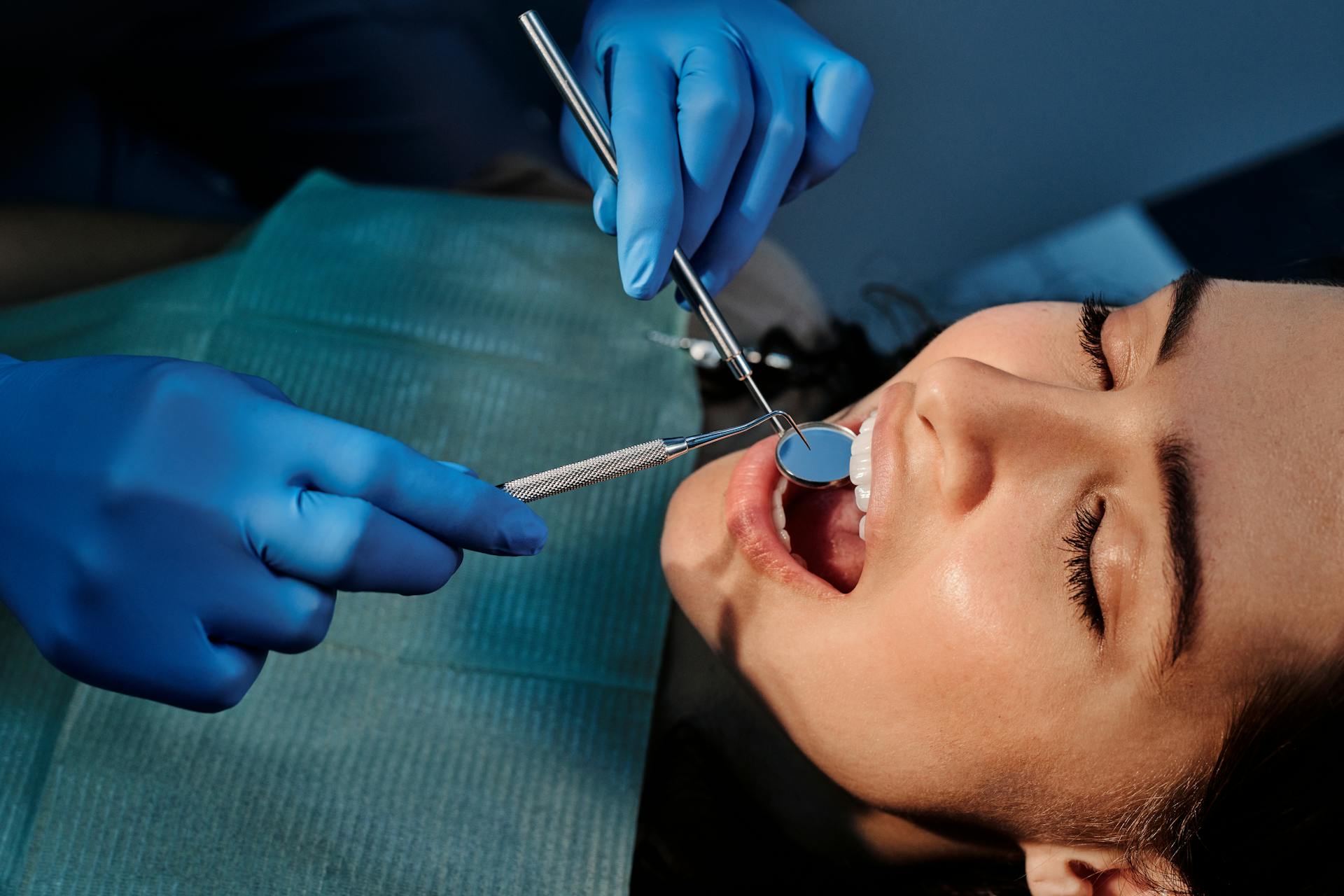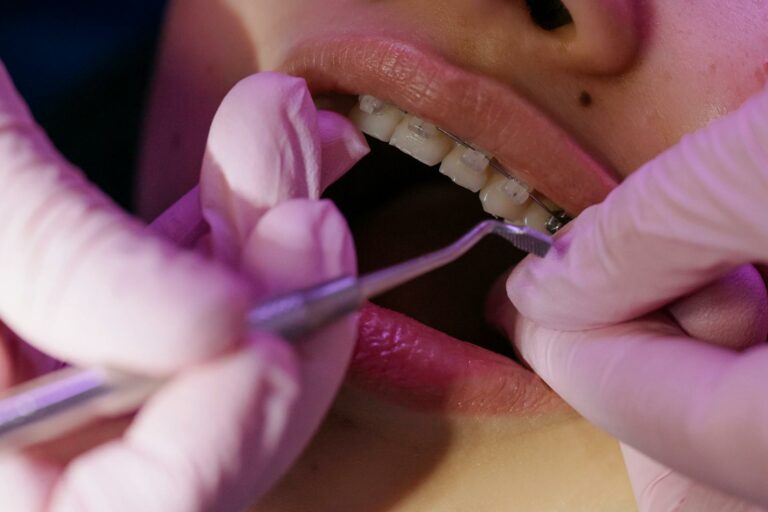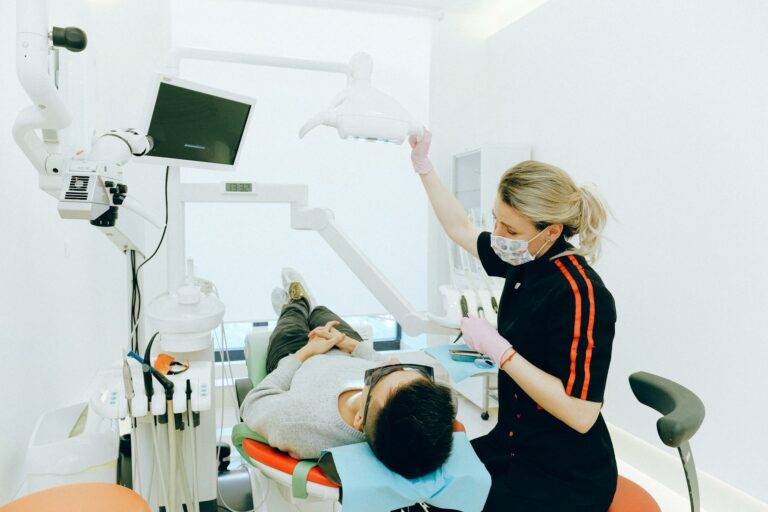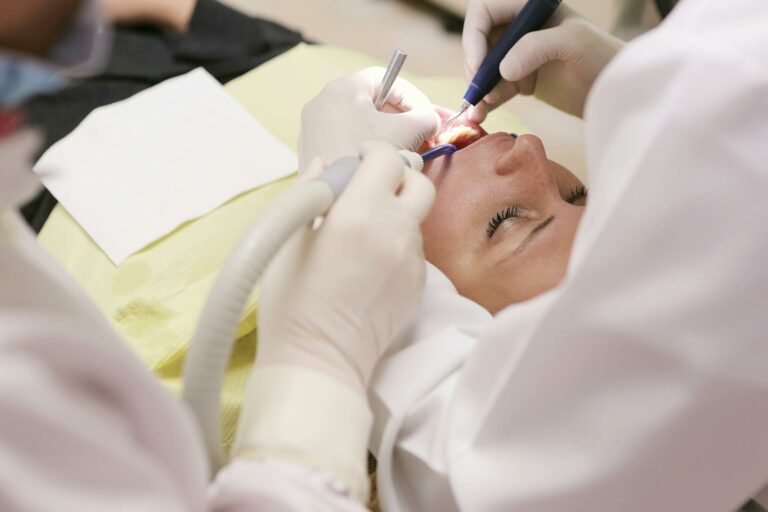Oral Surgeons in Williamsburg: When to Seek Specialized Surgical Dental Care
Oral surgeons in Williamsburg play an essential role in managing complex dental issues that go beyond the scope of general dentistry. They handle everything from impacted wisdom teeth to intricate jaw disorders. Recognizing when to seek their expertise can greatly impact one’s oral health. But how do you know when it’s time to consult an oral surgeon? Understanding the signs and procedures can guide patients to make informed decisions about their dental care.
Understanding the Role of Oral Surgeons
Although the field of dentistry encompasses various specialties, the role of oral surgeons is particularly essential due to their expertise in performing complex surgical procedures within the oral cavity and facial structures. These specialists undergo extensive training, which includes a dental degree followed by a residency in oral and maxillofacial surgery, guaranteeing thorough oral surgeon qualifications. Their proficiency allows them to address issues such as impacted teeth, jaw misalignments, and facial trauma with precision.
Patient consultation is a critical step in the process, allowing oral surgeons to assess individual needs and formulate tailored treatment plans. During these consultations, they evaluate medical histories, discuss surgical options, and set realistic expectations for recovery. This collaborative approach guarantees that patients receive informed, specialized care tailored to their unique conditions.
Signs You Might Need an Oral Surgeon
Recognizing the signs that necessitate a visit to an oral surgeon can be essential for maintaining oral health and preventing further complications. Persistent oral pain, difficulty chewing, or chronic jaw discomfort may indicate underlying issues requiring surgical consultation. Oral surgeons are also sought when tooth extractions are too complex for general dentists, such as impacted wisdom teeth. Additionally, noticing unusual growths or lesions in the mouth suggests the need for professional evaluation to rule out serious conditions. Misaligned jaws or facial injuries resulting from accidents also warrant a surgical consultation to restore functionality and aesthetics. Oral health concerns like cysts or infections unresponsive to conventional treatment should prompt consideration of an oral surgeon’s expertise to prevent escalation of the condition.
Common Procedures Performed by Oral Surgeons
Oral surgery encompasses a variety of specialized procedures aimed at addressing complex dental and facial issues. Among the most common are bone grafting techniques and sinus lift procedures. Bone grafting is essential for patients who have insufficient jawbone density, often necessary for successful dental implants. This procedure involves adding bone material to strengthen and support the existing jawbone structure. Sinus lift procedures are typically performed when the upper jaw lacks the necessary bone height for implants due to proximity to the sinus cavity. By elevating the sinus membrane and adding bone, oral surgeons create a more robust foundation for implant placement. These procedures highlight the intricate work of oral surgeons, ensuring patients receive thorough care for their dental health needs.
Impacted Wisdom Teeth: When Extraction Is Necessary
Impacted wisdom teeth can lead to symptoms such as pain, swelling, and even infection, signaling the potential need for extraction. Oral surgeons in Williamsburg are well-equipped to handle the removal of these problematic teeth through a precise and often necessary procedure. Understanding the symptoms and the extraction process can help patients make informed decisions about their oral health.
Symptoms of Impacted Teeth
When wisdom teeth fail to emerge properly, they become what is known as impacted, leading to a range of noticeable symptoms. Impacted teeth can cause discomfort and complications if not addressed promptly. Common dental symptoms include swelling and tenderness in the gum area behind the last molars, often accompanied by redness. A persistent bad breath or unpleasant taste may also signal infection due to trapped food particles around the impacted teeth. Pain or difficulty when opening the mouth is another indicator, sometimes radiating to the jaw, ear, or head. In some cases, impacted teeth may lead to crowding or shifting of adjacent teeth, affecting overall dental alignment. Recognizing these signs early can help in seeking timely professional evaluation and care.
Extraction Procedure Overview
The necessity of wisdom tooth extraction often arises when these third molars become impacted, presenting a situation that requires careful evaluation and intervention by dental professionals. Impacted wisdom teeth can lead to pain, infection, and damage to surrounding teeth, making tooth extraction vital. An oral surgeon typically performs this procedure, utilizing local anesthesia or sedation to guarantee patient comfort. The extraction process involves removing the impacted tooth, sometimes necessitating an incision in the gum and bone removal.
Post-extraction, the recovery process is essential for healing. Patients may experience swelling and discomfort, manageable with prescribed pain medication and ice packs. Adhering to post-operative care instructions, such as maintaining oral hygiene and avoiding strenuous activity, aids in a smooth recovery and prevents complications.
Correcting Jaw Misalignments and Disorders
Jaw misalignments, often caused by genetic factors, trauma, or developmental issues, can lead to significant discomfort and functional challenges. Oral surgeons in Williamsburg offer surgical corrections that not only alleviate pain but also improve chewing efficiency and enhance facial aesthetics. These procedures can dramatically enhance a patient’s quality of life, making them an essential option for those affected by such disorders.
Causes of Jaw Misalignments
Several factors can contribute to the misalignment of the jaw, each impacting oral health and overall well-being. Genetic factors play a significant role, as certain inherited traits may predispose individuals to jaw misalignments. For example, conditions like underbites or overbites can often be traced back through family history. In addition to genetic predispositions, lifestyle habits can exacerbate or even cause jaw misalignments. Habits such as thumb sucking in children, prolonged pacifier use, and teeth grinding can alter jaw development and alignment over time. Additionally, injuries or trauma to the jaw, whether from sports or accidents, can lead to misalignment. Recognizing these causes is vital for early intervention and management, potentially reducing the need for extensive future treatments.
Surgical Correction Benefits
When considering the benefits of surgical correction for jaw misalignments and disorders, it becomes evident that these procedures can greatly enhance both functionality and aesthetics. Surgical correction techniques, such as orthognathic surgery, address issues like misaligned bites, jaw pain, and chewing difficulties. By realigning the jaw, patients experience improved speech, easier eating, and a more balanced facial appearance, contributing to increased self-confidence. Additionally, these procedures promote long term oral health by alleviating stress on teeth and reducing the risk of future dental problems. Oral surgeons employ advanced, minimally invasive methods to guarantee ideal outcomes and quicker recovery times. Ultimately, surgical correction of jaw misalignments not only improves quality of life but also guarantees enduring dental health benefits.
Addressing Facial Trauma and Injuries
How do oral surgeons in Williamsburg effectively manage the complex task of addressing facial trauma and injuries? They employ a combination of expertise and advanced techniques to restore both function and appearance. Facial fractures, a common result of trauma, require precise alignment and stabilization to guarantee proper healing and symmetry. Surgeons utilize imaging technology to assess the extent of fractures and plan accurate interventions. Soft tissue injuries, such as lacerations and contusions, demand meticulous care to avoid scarring and maintain facial aesthetics. By employing suturing techniques that prioritize minimal scarring, oral surgeons guarantee the best cosmetic outcomes. Their thorough approach, integrating both surgical skill and patient-specific considerations, allows them to address the multifaceted challenges presented by facial trauma effectively.
The Process of Getting Dental Implants
Dental implants offer a reliable solution for replacing missing teeth, and the process involves several carefully orchestrated steps. Initially, patients consult with an oral surgeon to discuss dental implant types, which include endosteal and subperiosteal implants. After selecting the appropriate type, the procedure begins with surgically placing the implant into the jawbone. This step is essential for ensuring stability and mimicking natural tooth roots.
Following the surgery, a period of implant recovery is necessary, allowing the bone to integrate with the implant—a process known as osseointegration. Recovery time varies but typically spans several months. Once healing is sufficient, an abutment is attached to the implant, serving as a connection to the prosthetic tooth. Finally, a custom crown is placed, completing the restoration.
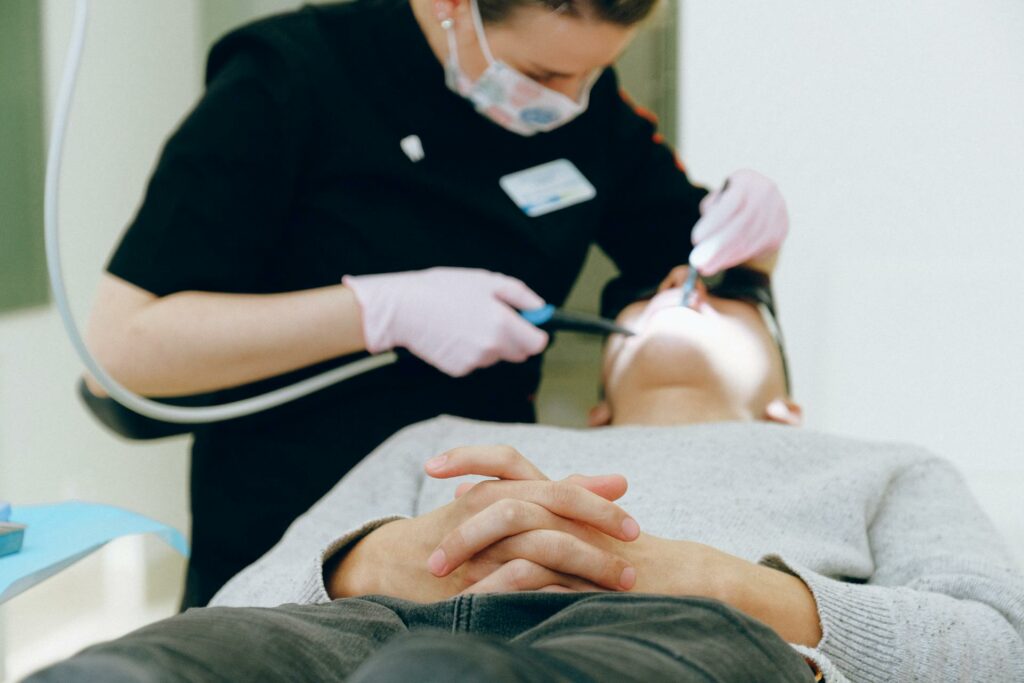
Oral Pathology: Diagnosing and Treating Oral Diseases
Oral pathology plays an essential role in maintaining oral health by focusing on the diagnosis and treatment of diseases affecting the mouth, jaws, and related structures. This specialized field identifies conditions such as oral cancer and gum diseases, both of which can greatly impact overall health. Oral cancer, for instance, requires early detection and expert intervention to improve treatment outcomes. Similarly, gum diseases, including gingivitis and periodontitis, can lead to tooth loss and other systemic health issues if left untreated. Oral pathologists utilize various diagnostic tools, including biopsies and imaging techniques, to accurately diagnose these conditions. By collaborating with oral surgeons, they guarantee thorough care, facilitating effective treatment plans to manage and mitigate the progression of oral diseases.
Preparing for Oral Surgery: What to Expect
Undergoing oral surgery can be a challenging prospect, but understanding what to expect can ease anxiety and facilitate a smoother experience. Patients are encouraged to adhere to a pre surgery checklist, which typically includes fasting, arranging transportation, and understanding prescribed medications. Important details such as health history should be communicated to the oral surgeon to prevent complications. On the day of surgery, wearing comfortable clothing and bringing a responsible adult for assistance is advised.
Post operative care is essential for recovery. Patients should follow instructions on managing pain, swelling, and dietary restrictions. Keeping the surgical site clean and attending follow-up appointments are critical for monitoring healing progress. Being well-prepared and informed can greatly contribute to a successful oral surgery experience and ideal recovery.
Frequently Asked Questions
How Long Is the Recovery Time After Oral Surgery?
The recovery timeline after oral surgery can vary, typically ranging from a few days to two weeks. Post-surgery expectations include managing swelling and discomfort. Patients should follow their surgeon’s guidelines for ideal recovery and healing.
Are Oral Surgeons Covered by Dental Insurance Plans?
Insurance coverage for oral surgeons varies by dental plans. Many dental benefits include basic oral surgery, yet complex procedures might require additional coverage. Patients should review their specific plan details to understand the extent of their benefits.
What Qualifications Should an Oral Surgeon in Williamsburg Have?
Oral surgeons in Williamsburg should possess significant education requirements, including a dental degree and additional surgical training. Surgical experience is crucial, as it guarantees proficiency in complex procedures, contributing to a higher standard of patient care and successful outcomes.
How Can I Manage Pain After Oral Surgery?
Pain management after oral surgery involves effective pain relief techniques and diligent post-operative care. Patients are advised to follow prescribed medication regimens, apply ice packs, maintain oral hygiene, and consume soft foods to promote healing and comfort.
Are There Dietary Restrictions Following Oral Surgery?
Following oral surgery, adhering to specific dietary guidelines is essential for recovery. Soft foods and liquids are recommended initially, as post-operative nutrition focuses on minimizing discomfort and promoting healing. Avoid hard, spicy, or acidic foods during this period.
